Breaking News


Popular News

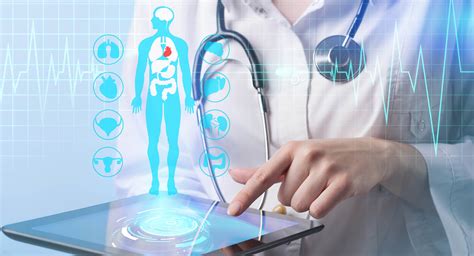
Explore the impact of science and technology on healthcare – from medical imaging and precision medicine to robotic surgery and gene editing breakthroughs.In recent years, the field of healthcare has been significantly transformed by the advancements in science and technology. From the development of cutting-edge medical imaging technology to the groundbreaking innovations in precision medicine, the impact of these advancements is undeniable. In this blog post, we will explore the various ways in which science and technology have revolutionized healthcare, focusing on medical imaging technology, precision medicine innovations, robotic surgery techniques, telemedicine and remote monitoring, and gene editing breakthroughs. These advancements have not only improved the accuracy of diagnoses and personalized treatment options, but they have also enabled healthcare professionals to perform complex surgical procedures with greater precision and efficiency. Additionally, the integration of telemedicine and remote monitoring has expanded access to healthcare services, while gene editing breakthroughs offer the potential to cure genetic disorders that were once considered incurable. Join us as we delve into the impact of these advancements on healthcare and the promising future they hold.
Contents
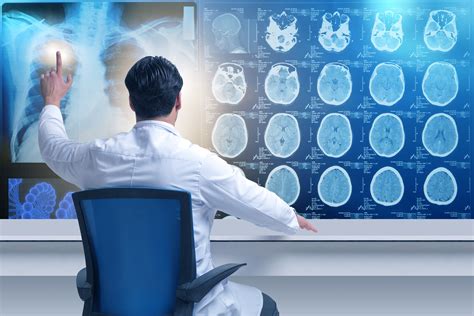
Medical imaging technology has revolutionized the way healthcare professionals diagnose and treat various medical conditions. The advancements in medical imaging technology have significantly improved patient outcomes and have made it possible to detect diseases at earlier stages. These technologies include X-rays, computed tomography (CT) scans, magnetic resonance imaging (MRI), and ultrasound, among others.
Furthermore, these imaging techniques provide healthcare providers with detailed images of the inside of the human body, allowing them to accurately identify and diagnose medical conditions. These tools are essential in helping physicians plan and monitor treatments. In addition, medical imaging technology plays a crucial role in interventional procedures, allowing for minimally invasive surgeries and treatments, which ultimately leads to faster recovery times for patients.
On top of that, medical imaging technology has also evolved to include cutting-edge innovations such as 3D imaging, virtual reality, and artificial intelligence. These advancements have further enhanced the accuracy and precision of medical diagnoses and have opened up new possibilities for personalized medicine and targeted therapies. As technology continues to advance, the future of medical imaging looks promising, with the potential to revolutionize how diseases are diagnosed, monitored, and treated.

Precision medicine refers to a medical model that customizes healthcare and medical treatment to an individual’s genetic makeup, lifestyle, and environmental factors. This approach aims to provide the right treatment to the right patient at the right time, leading to more effective outcomes and reduced side effects.
With recent advancements in technology, precision medicine has made significant strides in the healthcare industry. The development of next-generation sequencing has allowed for comprehensive analysis of an individual’s genetic profile, leading to a better understanding of diseases and potential treatment options. Furthermore, the use of big data analytics and artificial intelligence has contributed to the discovery of new molecular targets and the development of personalized treatment plans.
Moreover, precision medicine innovations have revolutionized the way healthcare providers diagnose and treat various diseases. The use of liquid biopsies and circulating tumor DNA has enabled the early detection of cancer and monitoring of treatment response, ultimately improving patient outcomes and survival rates. Additionally, the integration of telemedicine and remote monitoring has enhanced access to precision medicine, especially for individuals in underserved communities or rural areas.
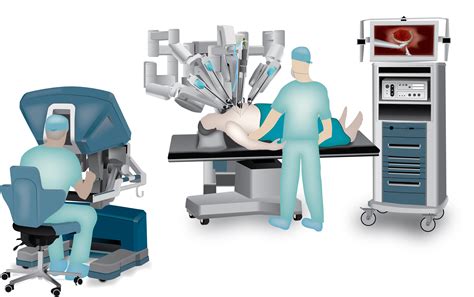
Robotic surgery, also known as robot-assisted surgery, involves the use of advanced technology to perform surgical procedures. The robotic surgical techniques utilize a robotic system to enhance the surgeon’s precision and control during the operation. This innovative technology allows for minimally invasive procedures, which result in smaller incisions, less blood loss, reduced pain, and faster recovery times for patients.
Furthermore, robotic surgery offers numerous benefits such as improved visualization, as the surgeon can view the procedure in high definition 3D, and enhanced dexterity, as the robotic arms can rotate and bend with a greater range of motion than the human hand. In addition, the use of robotic surgery techniques allows for the performance of complex procedures in difficult-to-reach areas of the body with greater accuracy and success.
Robotic surgery has revolutionized the field of medicine by providing a less invasive option for patients while offering surgeons greater precision and control. It has been widely adopted in various surgical specialties, including urology, gynecology, and cardiac surgery. As technology continues to advance, robotic surgery techniques are expected to become even more sophisticated and widespread, further improving patient outcomes and advancing the field of healthcare.
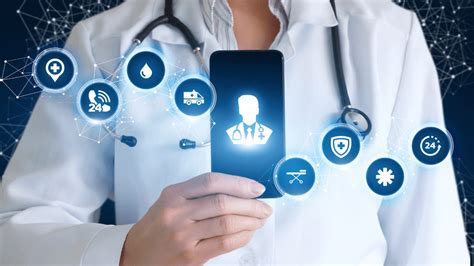
Telemedicine and remote monitoring have revolutionized the way healthcare is delivered, allowing patients to receive medical care and monitoring from the comfort of their own homes. This technology utilizes telecommunication and information technologies to provide clinical healthcare services remotely, eliminating the need for in-person appointments and reducing the risk of exposure to contagious illnesses.
With the rise of telehealth platforms and remote monitoring devices, patients can now consult with healthcare providers through video calls, phone calls, or secure messaging. This enables individuals to seek medical advice for non-urgent issues without having to physically visit a healthcare facility, saving time and minimizing the burden on overcrowded hospitals and clinics.
Remote monitoring devices such as wearable trackers and mobile health apps allow patients to monitor their vital signs, medication adherence, and overall health status from home. These tools enable healthcare providers to remotely track and manage the health of patients with chronic conditions, ensuring timely interventions and preventing unnecessary hospital admissions.
| Benefits of Telemedicine and Remote Monitoring |
|---|
| Convenience for patients |
| Reduction in healthcare costs |
| Improved access to specialized care |
| Enhanced patient engagement and empowerment |
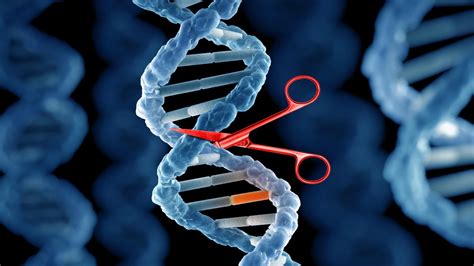
Gene editing breakthroughs have revolutionized the field of healthcare by offering the potential to treat genetic diseases at the root cause. With the emergence of technologies such as CRISPR, scientists are able to precisely modify the DNA of living organisms, including humans, with unprecedented accuracy.
Utilizing gene editing techniques, researchers have been able to target and correct faulty genes associated with various inherited disorders, offering hope to patients who previously had limited treatment options. These breakthroughs have the potential to not only treat, but also prevent a wide range of genetic diseases, paving the way for personalized medicine tailored to an individual’s genetic makeup.
Furthermore, gene editing has the potential to revolutionize various aspects of healthcare, including the development of more effective cancer treatments, improved agricultural practices, and even bioengineering of organisms for environmental conservation purposes.
| Benefits of Gene Editing |
|---|
| Targeted treatment of genetic diseases |
| Potential for personalized medicine |
| Advancements in cancer treatments |
| Applications in agriculture and environmental conservation |

How has science and technology improved healthcare?
Advancements in science and technology have led to improved medical treatments, faster diagnosis, and better patient care. For example, the development of medical imaging technology has enabled doctors to diagnose and treat diseases more accurately and non-invasively.
What are some examples of healthcare advancements due to science and technology?
Some examples include the invention of vaccines, the use of telemedicine for remote patient care, the development of robotic surgery techniques, and the creation of personalized medicine based on genetic testing.
How has data analytics impacted healthcare?
Data analytics has transformed healthcare by allowing for the analysis of large volumes of patient data to identify trends, predict outcomes, and improve treatment protocols. This can lead to more personalized and effective patient care.
What role does artificial intelligence play in healthcare advancements?
Artificial intelligence has played a significant role in healthcare by enabling more accurate diagnostics, personalized treatment plans, and efficient administrative processes. It has also been used for drug discovery and development.
What are some challenges in adopting new healthcare technologies?
Challenges in adopting new healthcare technologies include regulatory hurdles, data privacy concerns, initial costs and infrastructure requirements, as well as resistance to change from healthcare professionals and patients.
How can science and technology help improve access to healthcare?
Science and technology can improve access to healthcare through telemedicine, mobile health apps, wearable devices, and remote patient monitoring. These tools can reach underserved populations and provide more convenient and affordable care options.
What are some future trends in healthcare technology we can expect to see?
Future trends in healthcare technology include the use of virtual reality for medical training and patient therapy, the integration of health wearables with artificial intelligence, and the advancement of gene editing technologies for precision medicine.